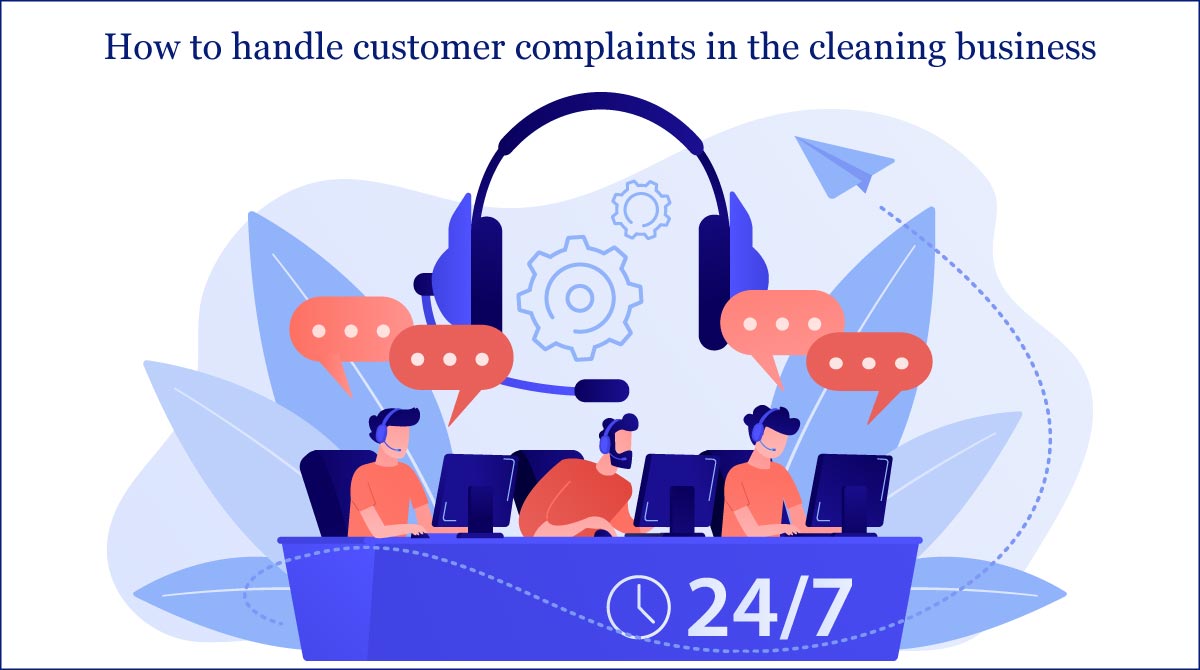
Your job as a Customer Service Representative/Cleaner is to listen to a customer’s complaint and help them with the problem, but you should always be careful how you handle it. When handling a customer complaint, the best approach is listening to the entire complaint and taking notes while discussing their problem. It would help if you also asked questions to find out the actual problem to recommend the most suitable solution. When you are familiar with their situation, put yourself in their shoes and make sure their issue is resolved before they leave.
Don’t ignore the complaint.
Now that you have a list of complaints, it’s time to address them. If you don’t address your customer’s concerns, there is no way for you to determine if they were satisfied with the outcome. Ignoring a complaint can lead to an unhappy customer and possibly even legal action against your business.
“I am not saying don’t complain,” says Brian Davis, marketing manager at [company name]. “But do so in an appropriate way.”
Listen to the entire complaint.
An essential part of handling a customer complaint is listening to the entire complaint and showing empathy as the customer describes their problem. You should take notes while they talk, ask questions to dig deeper into the problem, confirm your understanding, and avoid interrupting them.
If you know what caused their dissatisfaction (for example, if it was due to broken cleaning equipment or a poor job done by one of your employees), don’t interrupt and wait until they finish describing their issue before offering an apology or resolution.
Most people are reasonable and understand that all businesses make mistakes. However, if you apologize for a mistake as if the customer is at fault, this will only make them angry. Apologize for the experience they’ve had with your company, not the problem itself.
- I apologize for this situation.
- We’re sorry about the inconvenience.
- You deserve better than that.
Ask questions to understand the customer’s situation better.
Ask open-ended questions:
Listening is an essential part of this process, and asking open-ended questions will help you understand the customer’s situation. You might want to start by asking what happened, but don’t stop there! It would help if you also asked how they feel about it (or why they’re upset), their expectations, and what has been done to resolve the problem. This way, you’ll get a clearer picture of what went wrong and whether or not your team can fix it.
Listen for emotions behind the complaint:
Your customers probably won’t tell you directly if they’re having a bad day or feeling frustrated with something else unrelated to your business. But sometimes, it’s written all over their face—listen for hints about any underlying feelings that aren’t explicitly stated complaint itself. For example, if someone says, “I’m upset because I didn’t think my apartment was going to be cleaned today,” but then goes on to say, “and now I’m late for work,” chances are good that this person isn’t just upset about cleaning being delayed—the fact that they’ll now have no clean clothes at work may also be weighing heavily on their mind! Asking follow-up questions like these will help both parties develop solutions faster than otherwise possible using other methods alone!
Take responsibility and offer a solution.
Always be prepared to take responsibility for any issues during the process. This will immediately show your customers that you care and are willing to do whatever it takes to satisfy them.
A sincere apology is a great place to start, but don’t stop there! Your problem-solving skills need to kick in right away so that you can find a solution together.
If a customer tells you there was dirt on their floors after cleaning, listen carefully and offer an explanation of what happened before responding with an apology or offering some action plan (for example: “I’m sorry this happened, but I am happy to come back over this weekend and re-clean your home at no extra cost”).
Follow up with your customer.
After you’ve handled the complaint, make sure you follow up with your customer to ensure they are satisfied. This will ensure that no problems remain and allow you to check for any issues that might have arisen during the cleaning process. In addition to following up with your client, it’s essential to follow up with all of the people involved in handling the complaint: yourself and any staff members who handled it.
Make sure you follow up with yourself and anyone else involved in resolving the issue by asking yourself if there was anything else that could have been done during this interaction or process. This can help prevent similar issues from occurring later on down the road!
It’s essential not only for businesses but also for individuals such as housecleaners who may not be aware of how complaints can affect them financially; making sure these things don’t happen again becomes even more critical than ever before!
Complaints are an opportunity to improve.
When customers make a complaint, it’s an opportunity for you to improve your relationship with them. If you handle the complaint satisfactorily, you’ll be able to make the customer feel valued and appreciated—which will encourage them to become more loyal in the long run. And if you mishandle the complaint? Well, then your business could lose that customer forever!
The first step is to listen carefully to what they have to say: their concerns, frustrations, and complaints. Then acknowledge how frustrating those things must’ve been for them—and apologize if there was anything that could’ve been done better on your part (like not responding promptly enough or providing inaccurate information). Being empathetic clarifies that this isn’t just an inconvenience for you; it affects them too! That’s why we’re so sorry about what happened here.”
Conclusion
When dealing with customers, you’ll want to listen carefully to their problems. It would help if you did this from the moment they talk to you on the phone until they walk out of your door. Listening well is one of the most complex parts of customer service because you can’t fake it. That’s why it’s so crucial that you take notes and ask questions as the customer tells you their story. You don’t want to miss anything or hurt their feelings by asking questions too soon; that would be rude and disrespectful.
COMMENTS
LET US KNOW YOUR REQUIREMENTS
You must be logged in to post a comment.


